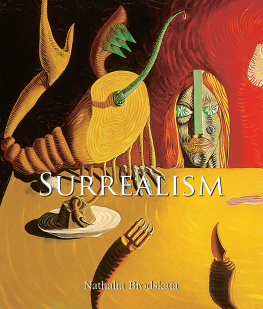THE COMPLETE SHORT STORIES OF NATALIA GINZBURG
The Complete Short Stories of Natalia Ginzburg
Translated by
Paul Lewis
University of Toronto Press Incorporated 2011
Toronto Buffalo London
www.utppublishing.com
Printed in Canada
ISBN 978-0-8020-9920-4
Printed on acid-free, 100% post-consumer recycled paper with vegetable-based inks.
Toronto Italian Studies
Library and Archives Canada Cataloguing in Publication
Ginzburg, Natalia
The complete short stories of Natalia Ginzburg / translated by Paul Lewis.
(Toronto Italian studies series)
Includes bibliographical references.
ISBN 978-0-8020-9920-4
1. Ginzburg, Natalia Translations into English.
I. Lewis, Paul, 1981 II. Title. III. Series: Toronto Italian studies
PQ4817.I5A2 2011 853.912 C2010-906444-5
Unassenza, Casa al mare, Mio Marito, and La Madre are translated with the permission of the originating publisher, Giulio Einaudi Editore.
This book has been published with the assistance of grants from the Istituto Italiano di Cultura, Toronto and the European Jewish Publication Society. The European Jewish Publication Society gives grants to support the publication of books relevant to Jewish literature, history, religion, philosophy, politics, and culture.
University of Toronto Press acknowledges the financial assistance to its publishing program of the Canada Council for the Arts and the Ontario Arts Council.
University of Toronto Press acknowledges the financial support of the Government of Canada through the Canada Book Fund for its publishing activities.
Contents
Acknowledgments
I wish to extend my thanks to Alan Bullock, Emeritus Professor of Italian at the University of Leeds, for his kind permission to quote extensively from his seminal work Natalia Ginzburg: Human Relationships in a Changing World (Berg Publishing, 1991) in the introduction which accompanies the translated stories contained in this book. Thanks also go to A. & C. Black Publishers Ltd (on behalf of Berg) for their permission to reproduce passages from Professor Bullocks work.
Where I have quoted from published translations of Ginzburgs essays in the introduction this is indicated by way of an endnote. Otherwise all the translations contained in the introduction and the translation of the stories themselves are of my own undertaking.
I am grateful to Jen Wienstein, Faculty Lecturer at McGill University, and Alan Bullock, Emeritus Professor of Italian at the University of Leeds, for their help and encouragement throughout this project. I would also like to thank Dr Elena Lombardi of the Department of Italian at the University of Bristol and Jennifer Lorch, formerly of the Department of Italian at the University of Warwick, for their helpful suggestions in relation to the translated stories contained in this book. My thanks also go to Ron Schoeffel of the University of Toronto Press for doing so much to help coordinate this project, and finally the Istituto Italiano di Cultura in Toronto and the European Jewish Publication Society for helping to commission this work.
THE COMPLETE SHORT STORIES OF NATALIA GINZBURG
Introduction
Natalia Ginzburg is today recognized as one of the foremost women writers to emerge from twentieth-century Italian literature. Born in 1916 in Palermo under the maiden name of Levi, she was the youngest of five children brought up in a mixed marriage her father being Jewish and her mother a Catholic. When Ginzburg was aged just three the Levi family left Sicily to resettle in the north of Italy after her father took up a professorship at the University of Turin. Ginzburgs first piece of published work, the short story Unassenza (An Absence) was written at the age of seventeen and was published in the Florentine periodical Solaria in 1933. Her final publication, the short play Il Cormorano (The Cormorant), was written at the age of seventy-five in 1991; she died in the autumn of the same year. Ginzburgs work represents an impressive and varied collection, as her fictional creations come in the form of short stories, novellas, novels, and plays. She also produced a number of translations and essays, the latter being expressions of her ideas and principles on a wide variety of subjects and themes. Her published works, spanning nearly sixty years of a century that witnessed great social change in Europe, are testament both to a prolific career and to Ginzburgs self-declared realization that [writing] is my vocation, and I will do it until I die.
Ginzburgs published short stories have never to date appeared in a single collection either in their original Italian or in English translation. Her complete works, edited by Cesare Garboli, have appeared in Italian as Opere raccolte e ordinate dallAutore (Mondadori, 19867); however, this collection, two volumes of which have so far appeared, contains only a selection of the short stories (in fact only half of them). An earlier volume of her work entitled Cinque romanzi brevi (Einaudi, 1964) similarly contains only four of the eight stories; furthermore, with the exception of La madre (The Mother), none of these has so far been published in English translation. Thus while a selection of Ginzburgs novellas, novels, essays, and plays has been available in English translation for a number of years, the short stories still remain largely unknown to English-speaking audiences. In a sense it is not surprising that no attempt has yet been made to gather all of them into a single collection, as it may be said with some truth that, beyond a common literary format, there is little to tie such a collection together. After all, the eight short stories span over thirty years of Ginzburgs life (193365), time in which Ginzburg explored a variety of different literary forms, experienced several personal traumas, and also sustained periods of writers block. Nevertheless, there are, it is submitted, compelling reasons why these short stories should now be assembled as a single collection in English translation.
First and foremost: Ginzburgs earliest published works that is, those produced between 1933 and 1941 were composed exclusively in the short story format. These compositions were fundamental to her emergence as a recognized author and, as such, represent an important collection within the context of Ginzburgs wider repertoire of work. The significance of the earliest short stories primarily lies in their exposure of certain key themes and ideas which would come to characterize much of the authors later work; in particular, the stories reveal characters who are leading essentially unhappy and unfulfilled lives in which they experience a deep sense of alienation from the people who surround them. This dissatisfaction frequently leads her characters to the stark realization that they exist in a state of total solitude, unable to relate other than superficially and imperfectly to those around them. As well as highlighting Ginzburgs general preference for melancholic themes, these early short stories make clear that her chief preoccupation within this context was with the difficulties implicit in developing and sustaining meaningful human relationships.
If Ginzburgs earliest works expose the authors characteristic fascination with the essential bleakness of human existence, the stories also highlight the basic stimulus for most of Ginzburgs writing her sympathy and compassion for the difficulties faced by women in their social milieu. In a society where women still continue to be consigned to positions of inferiority, Ginzburgs achievement is indeed to communicate the complex subtleties of female sensibility though the portrayal of fictional characters whose context is almost invariably one of submission or exploitation.














